Mon-Thurs 8am-4pm & Fri 8am - 2pm
Industry Overview
The mining industry is a vital part of Australia’s economy, providing the resources that fuel our communities and industries. From coal and
minerals to metals and energy, mining projects rely on skilled workers and safe operations to keep production moving. With opportunities
across regional and remote areas, mining offers rewarding careers for those with the right qualifications.
At All States Training, we deliver nationally recognised training to prepare you for plant operations in mining environments. Our courses are designed to help you work safely, meet industry standards, and gain the skills employers are looking for on site.
(All States Training delivers this training on site using your machines, as we do not have our own.)
All States Training collaborates with third-party partners who may deliver these courses on our behalf. Please contact our office, and we
will direct you to the appropriate person who can assist with your enquiry.

Operate a Forklift
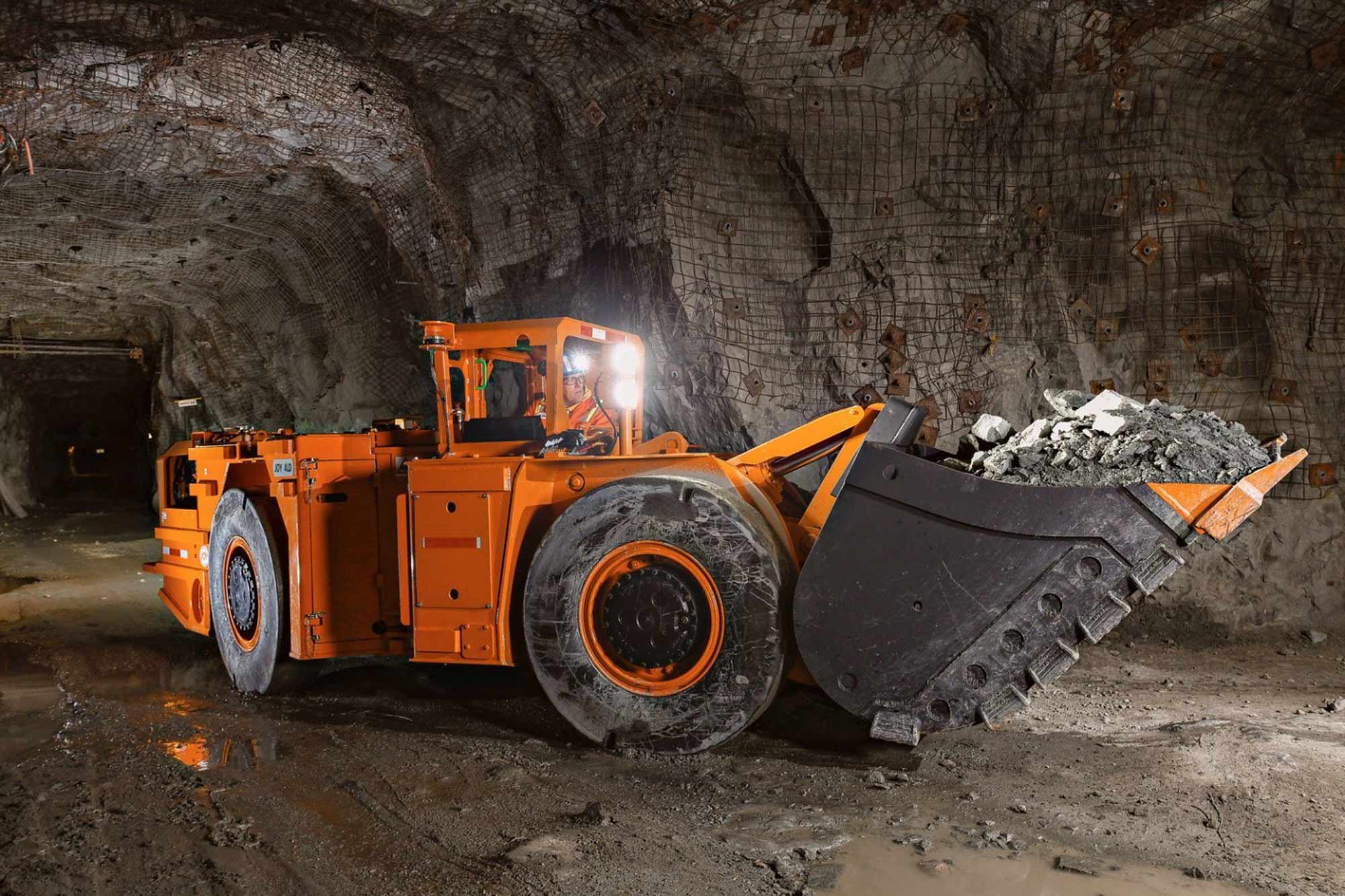
Operate Support Equipment
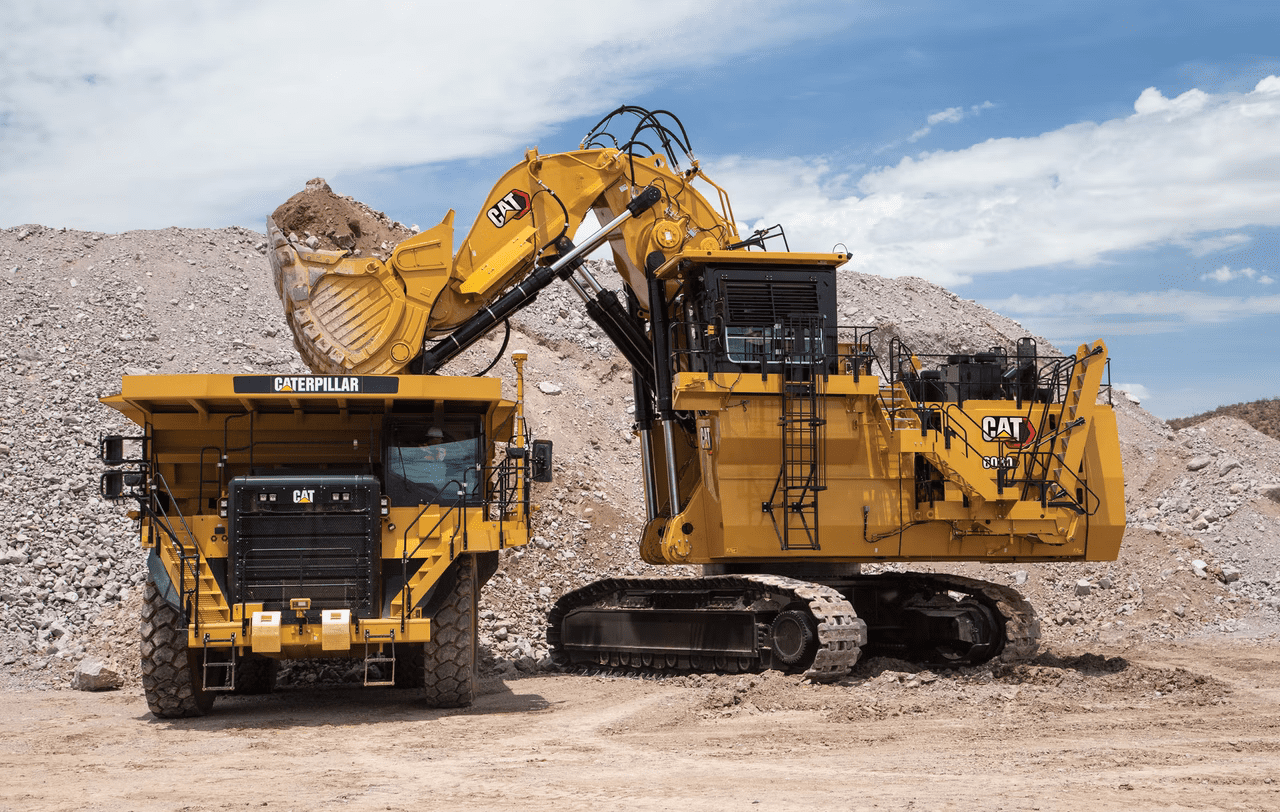
Conduct Hydraulic Shovel Operations
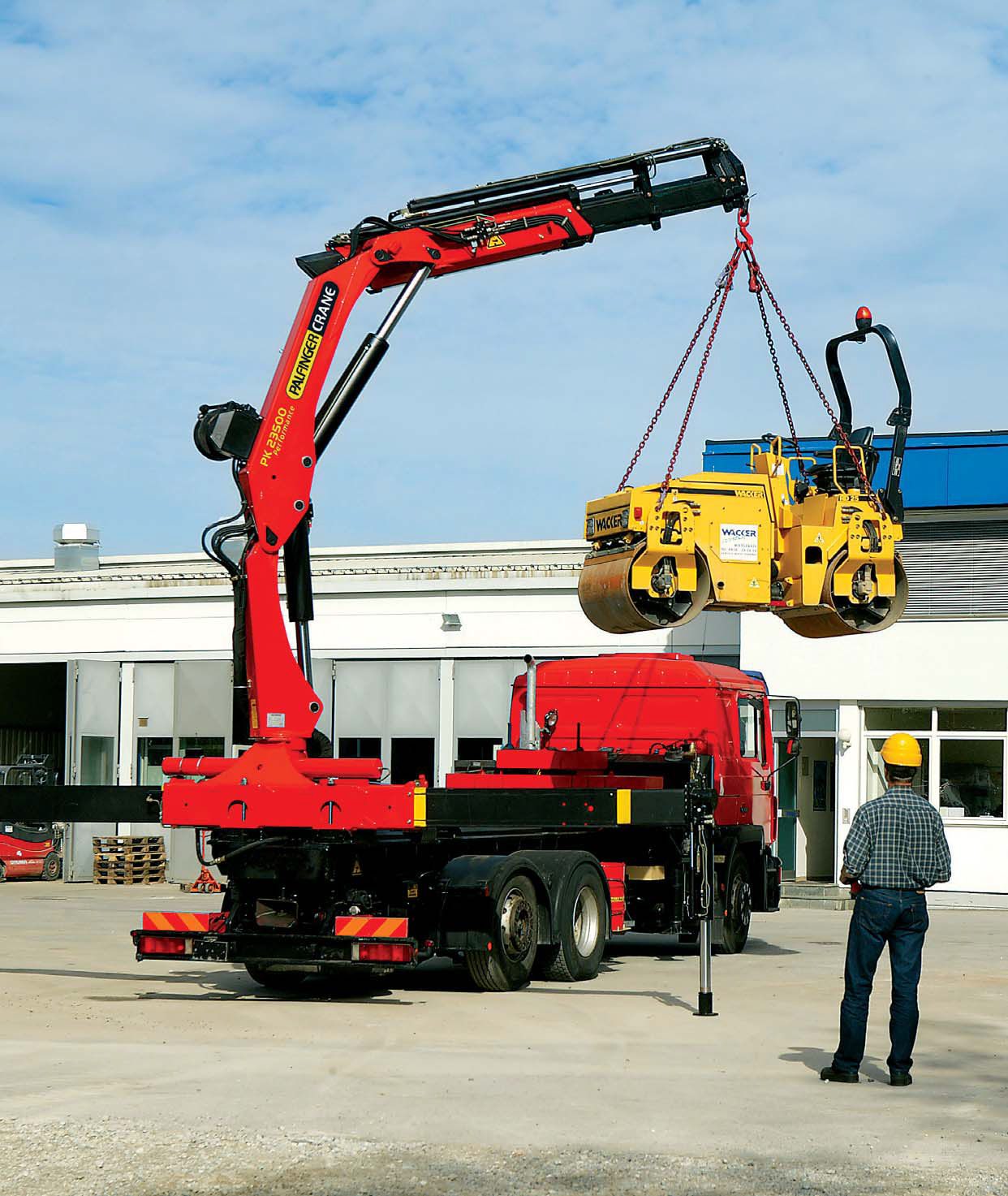
Operate a vehicle loading crane
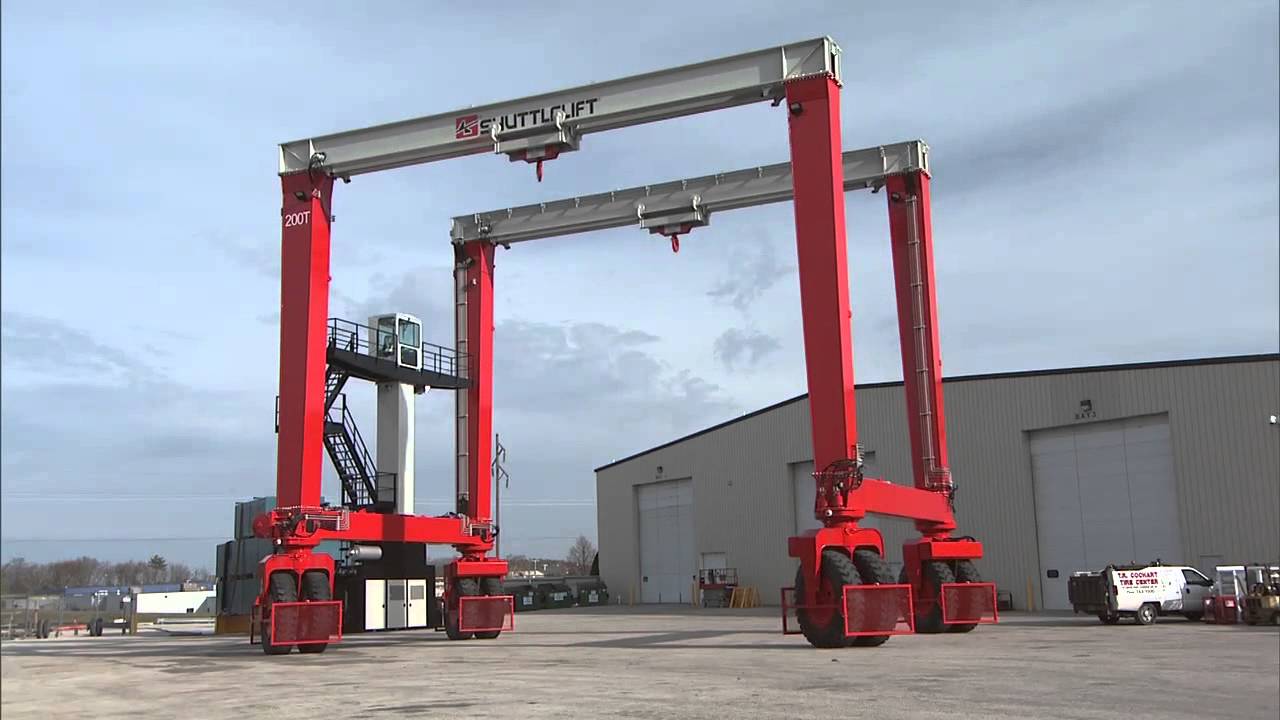
Operate a gantry or overhead crane
• Workers in manufacturing, logistics, steel fabrication, or warehouses
• Employers needing to verify operator competency
• Anyone operating a gantry or overhead crane with remote or pendant control in their job role
• Site workers required to move loads using overhead lifting systems
• Work health and safety (WHS) procedures and risk management
• Conducting pre-start equipment inspections
• Identifying load characteristics and lift planning
• Operating gantry/overhead crane controls
• Lifting, moving, and positioning loads safely
• Communication methods during crane operations
• Emergency stop and shutdown procedures
• Completing post-operational inspections and documentation
Upon successful completion, participants receive a Statement of Attainment for:
Refresher training is recommended every 5 years, or sooner if required by workplace policies, site requirements, or changes in equipment and legislation.
This Nationally Recognised Training course is delivered face-to-face by qualified and experienced trainers, ensuring a high standard of practical instruction.
All course materials and handouts are included in your course fee—Full pricing and applicable travel fees are confirmed at the time of booking.
.

Operate A Light Vehicle
This nationally recognised unit covers safe operation of a light vehicle, including defensive driving, routine vehicle checks, hazard management, and compliance with road rules and workplace procedures.
$350.00 per person
NOTE: Third party trainers fees may differ
Approx. 5 hour / Face to Face
None
Theory:
Written and/or verbal assessment covering WHS responsibilities, hazard control, and safe driving techniques.
Practical (including physical requirements):
Participants will demonstrate:
• Conducting pre-start and operational checks
• Safe operation of a light vehicle in workplace conditions
• Managing hazards and driving risks
• Completing shutdown and securing procedures
Note: Practical training involves sitting and driving for extended periods and basic manual handling. Students must have access to a compliant light vehicle in safe working condition.
• Civil construction and mining workers
• Transport and logistics personnel
• Councils, utilities, and maintenance workers
• Anyone required to drive a light vehicle for work
• WHS and legislative requirements for light vehicle operation
• Pre-operational checks and routine maintenance
• Safe driving and hazard awareness techniques
• Operating in varied terrain and weather conditions
• Shutdown and post-operational procedures
Upon successful completion, students will receive a Statement of Attainment for:
RIIVEH201E – Operate a Light Vehicle
Refresher training is recommended every 5 years, or sooner if required by workplace policies, site requirements, or changes in legislation or equipment.
This Nationally Recognised Training course is delivered face-to-face by qualified and experienced trainers, ensuring a high standard of practical instruction.
All course materials and handouts are included in your course fee—Full pricing and applicable travel fees are confirmed at the time of booking.
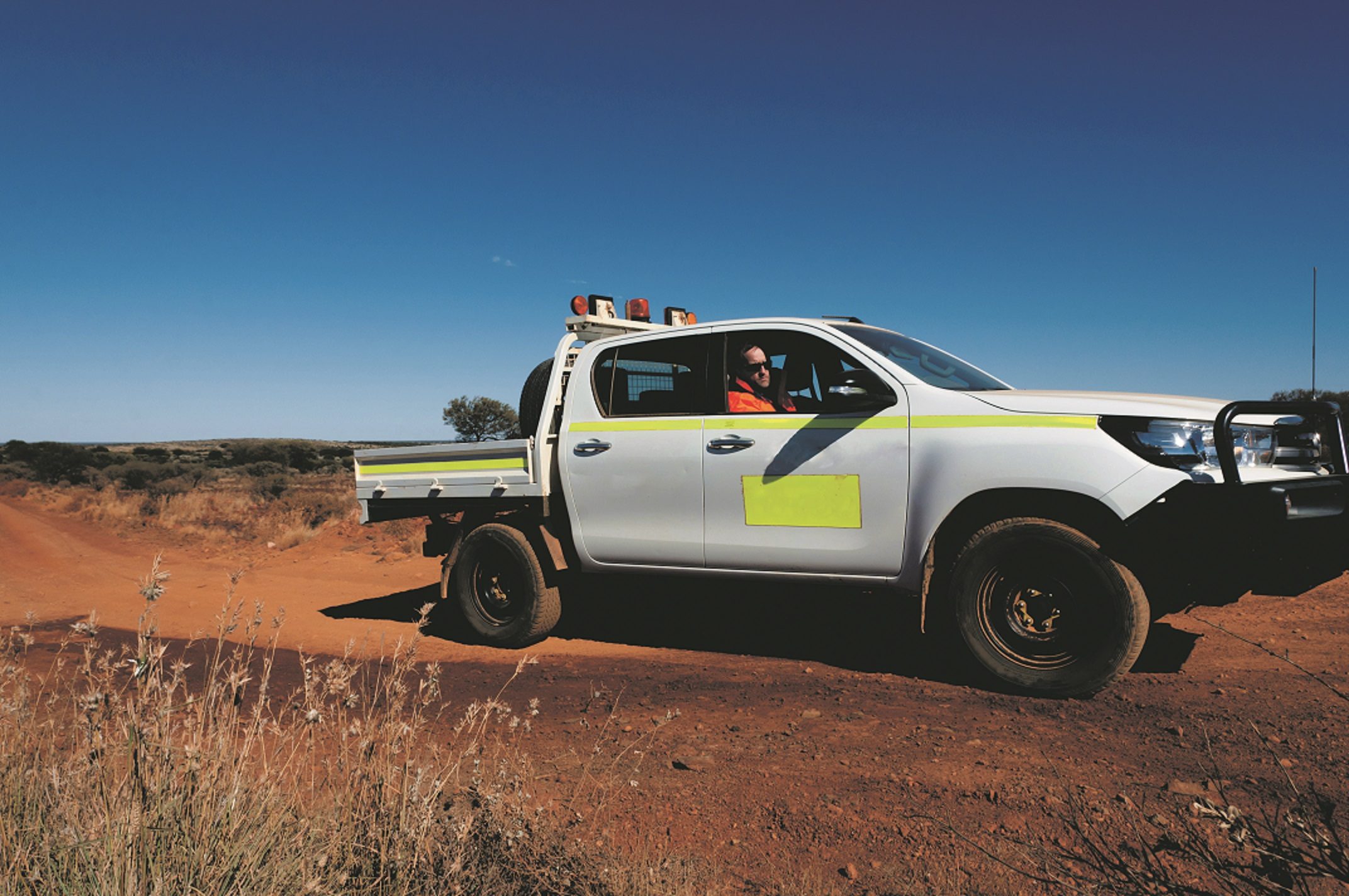
Operate and maintain a four-wheel drive vehicle
This nationally recognised unit covers both the operation and basic maintenance of a 4WD vehicle. It includes hazard identification, tyre and recovery equipment use, selecting correct driving techniques for different conditions, and completing post-operational checks to ensure vehicle safety and performance.
$700.00 per person
NOTE: Third party trainers fees may differ
Approx. 1 day / Face to Face
None
• Civil construction and mining workers
• Council, utilities, and land management staff
• Rangers and environmental officers
• Emergency services personnel
• Anyone required to drive a 4WD vehicle for work
• WHS and legislative requirements for 4WD vehicle operation
• Pre-operational checks and basic maintenance
• Safe driving techniques on varied terrains
• Use of 4WD systems and recovery equipment
• Shutdown and securing procedures
Theory:
Written and/or verbal assessment covering WHS responsibilities, 4WD operation, hazard controls, and vehicle maintenance requirements.
Practical (including physical requirements):
Participants will demonstrate:
• Conducting pre-start and operational checks
• Safely operating a 4WD on different terrains
• Selecting and using appropriate 4WD systems
• Performing shutdown and securing procedures
Note:
This course involves climbing into and out of vehicles, exposure to outdoor conditions, and moderate manual handling. Students must have
access to a compliant four-wheel drive vehicle in safe working condition for the practical assessment.
Upon successful completion, students will receive a Statement of Attainment for:
RIIVEH305F – Operate and Maintain a Four-Wheel Drive Vehicle
Refresher training is recommended every 5 years, or sooner if required by workplace policies, site requirements, or changes in legislation or equipment.
This Nationally Recognised Training course is delivered face-to-face by qualified and experienced trainers, ensuring a high standard of practical instruction.
All course materials and handouts are included in your course fee—Full pricing and applicable travel fees are confirmed at the time of booking.
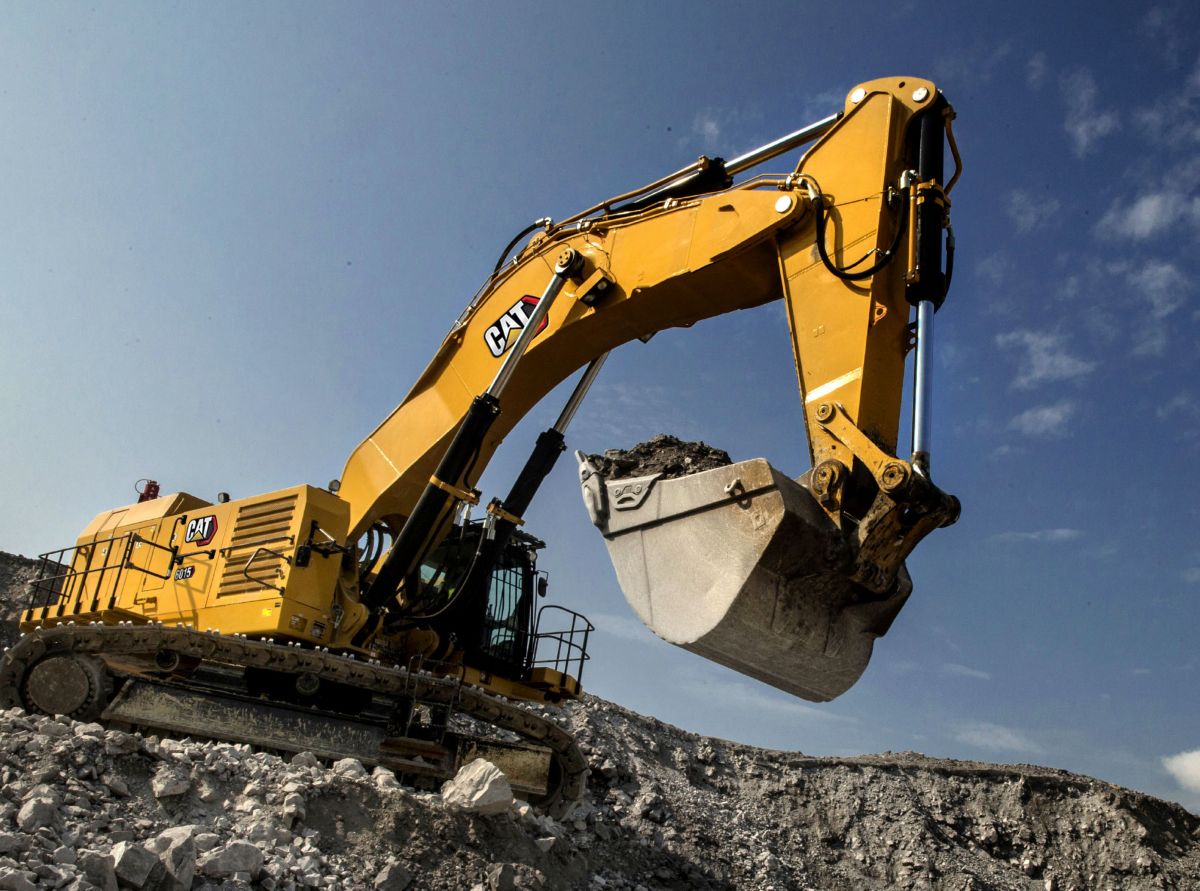
Conduct hydraulic excavator operations
This nationally recognised unit covers the safe and efficient operation of a hydraulic excavator. It includes hazard identification, trenching, lifting, loading, backfilling, using attachments, and performing routine maintenance across varied site conditions.
$700.00 per person
NOTE: Third party trainers fees may differ
Approx. 1 day / Face to Face
None
• Civil construction and mining workers
• Earthmoving and plant operators
• Utility, drainage, and service installation crews
• Anyone required to operate a hydraulic excavator
• WHS and legislative requirements for excavator operations
• Pre-operational checks and basic machine maintenance
• Safe excavation, trenching, and loading techniques
• Hazard identification and risk controls
• Shutdown and securing procedures
Theory:
Written and/or verbal assessment covering WHS responsibilities, excavator operation, hazard controls, and safe work procedures.
Practical (including physical requirements):
Participants will demonstrate:
• Conducting pre-start and operational checks
• Safely operating an excavator to complete required tasks
• Working appropriately across varied terrain and conditions
• Completing shutdown and securing procedures
Note:
This course involves climbing into and out of machinery, exposure to outdoor conditions, and moderate manual handling. Students must have
access to a compliant hydraulic excavator in safe working condition for the practical assessment.
Further Course Information
To successfully complete the course, students must provide one of the following:
• Letter of Support – confirming prior competency operating a hydraulic excavator,
OR
• Logbook – showing recent operating hours and tasks.
If the logbook is not completed prior to training, the trainer may need to return at a later date to finalise the practical sign-off.
Course Outcomes
Upon successful completion, students will receive a Statement of Attainment for:
RIIMPO302E – Conduct Hydraulic Excavator Operations
Refresher training is recommended every 5 years, or sooner if required by workplace policies, site requirements, or changes in legislation or equipment.
This Nationally Recognised Training course is delivered face-to-face by qualified and experienced trainers, ensuring a high standard of practical instruction.
All course materials and handouts are included in your course fee—Full pricing and applicable travel fees are confirmed at the time of booking.
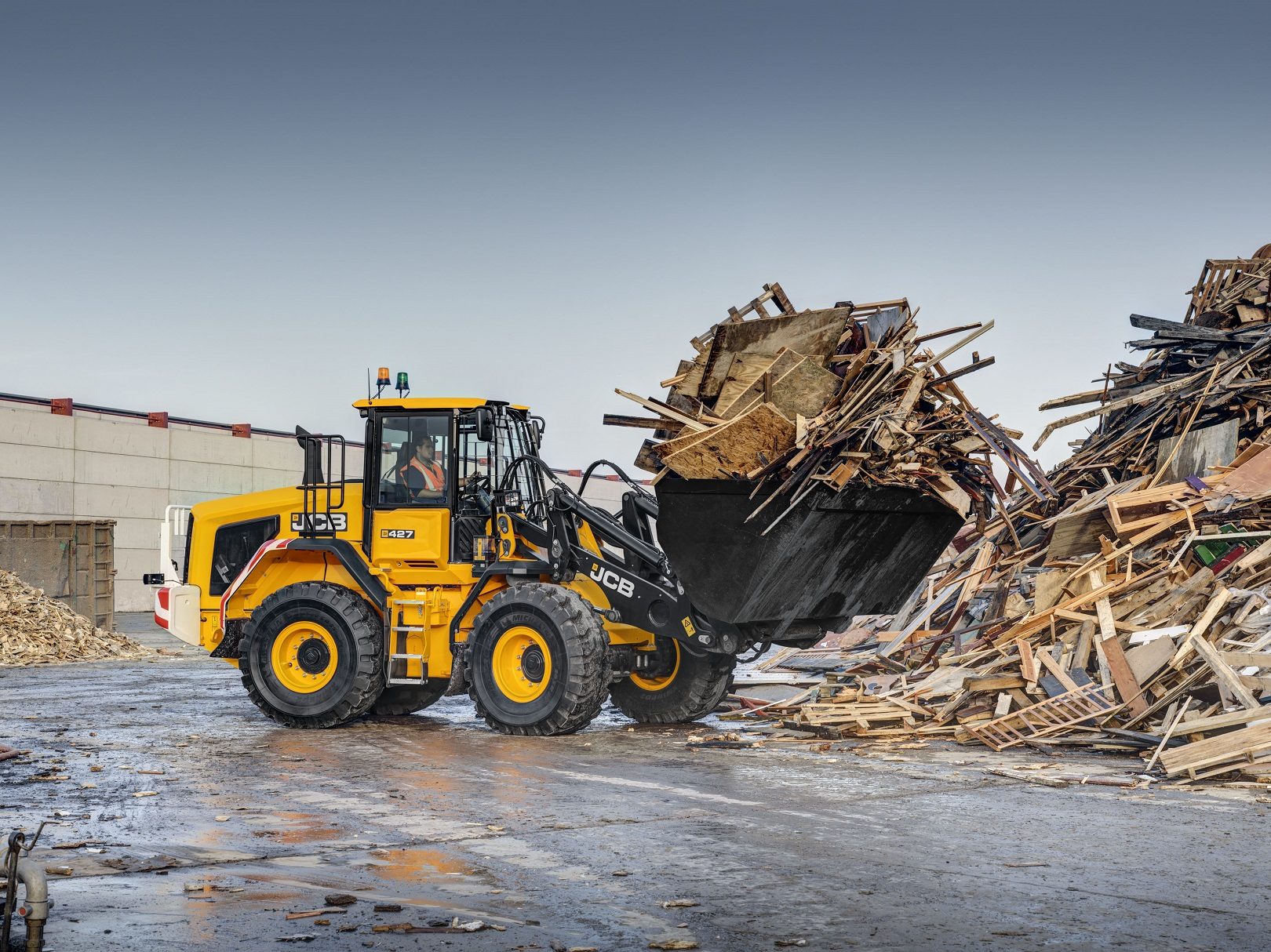
Conduct operations with integrated tool carrier
This nationally recognised unit covers the safe operation of an integrated tool carrier in accordance with WHS legislation, manufacturer requirements, and workplace procedures. It includes the selection and use of attachments, load handling techniques, hazard management, and routine maintenance procedures.
$700.00 per person
NOTE: Third party trainers fees may differ
1 Day / Face to Face
None.
Theory:
Written and/or verbal assessment covering WHS obligations, load handling procedures, attachment use, and safe operating techniques.
Practical (including physical requirements):
Participants will demonstrate:
Note: This course involves climbing into and out of machinery, standing for extended periods, and performing moderate manual handling. Students must have access to a compliant integrated tool carrier in safe working condition for the practical assessment.
Further Course Information
To successfully complete the course, students are required to provide one of the following:
Upon successful completion, students will receive a Statement of Attainment for:
RIIHAN311F – Conduct Operations with Integrated Tool Carrier
Refresher training is recommended every 5 years, or sooner if required by workplace policies, site requirements, or changes in equipment and legislation.
This Nationally Recognised Training course is delivered face-to-face by qualified and experienced trainers, ensuring a high standard of practical instruction.
All course materials and handouts are included in your course fee—Full pricing and applicable travel fees are confirmed at the time of booking.
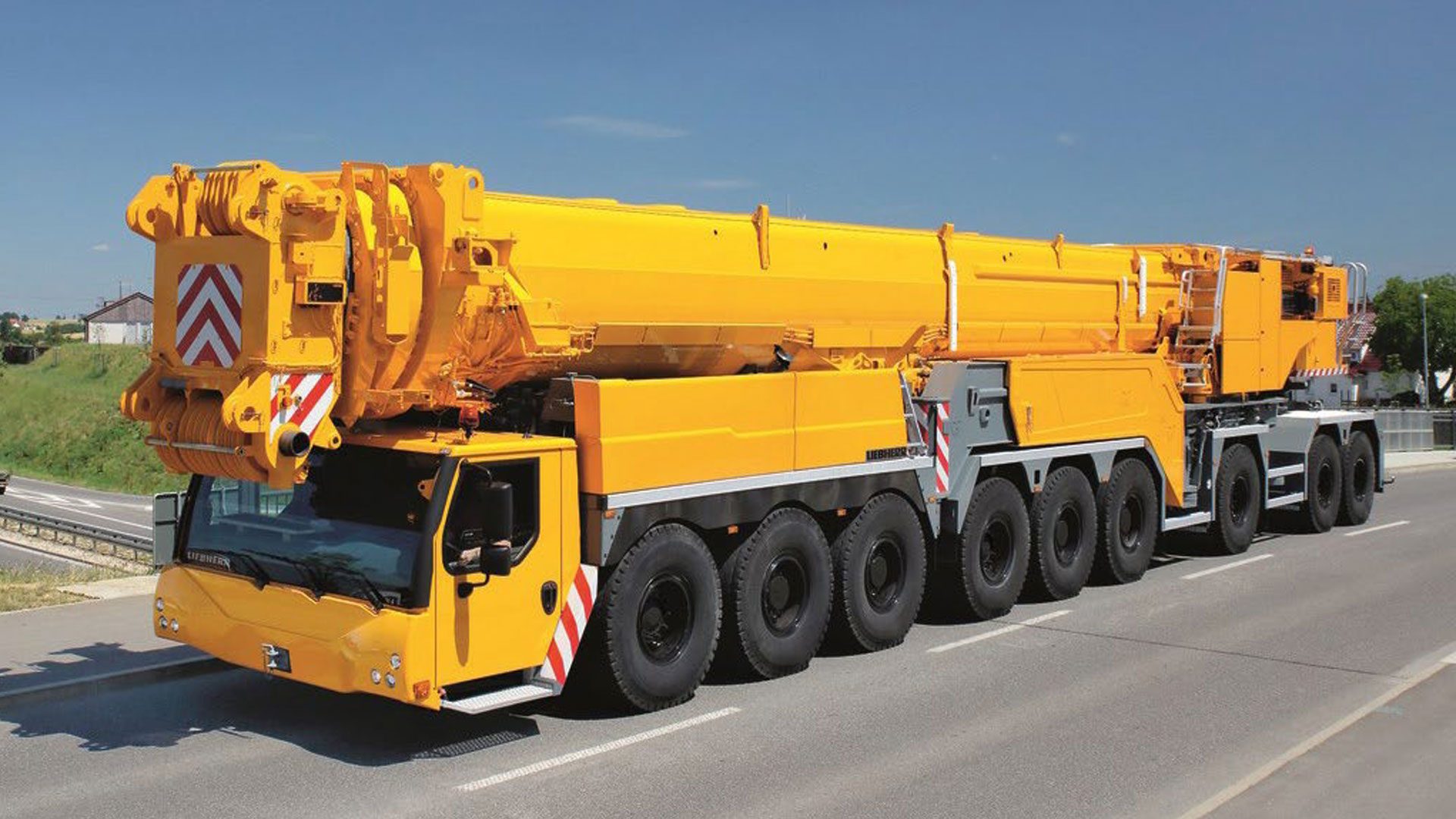
Conduct slewing crane operations
This nationally recognised unit describes the skills and knowledge required to safely conduct slewing crane operations in a range of settings, in accordance with WHS legislation, site policies, and industry standards. It includes planning and preparing for crane use, inspecting equipment, safely lifting and moving loads, and shutting down the equipment.
$700.00 per person
NOTE: Third Party trainers costs may differ
1 Day / Face to Face
None
Theory:
Written and/or verbal assessment covering safety, crane operation, risk control measures, and workplace procedures.
Practical (including physical requirements):
Participants will demonstrate:
• Pre-start inspections and site checks
• Safe lifting, moving, and placing of loads
• Interpreting and following lift plans
• Post-operation shutdown and reporting
Note: This course requires physical activity including climbing, standing, and manual handling. Students must have access to a compliant slewing crane in safe working condition for the practical assessment.
Further Course Information
To successfully complete the course, students are required to provide one of the following:
• Civil, construction, or industrial workers using slewing cranes
• Employers needing to verify crane competency where HRWL is not mandated
• Operators of cranes with a capacity under the licensing threshold or operating in non-licensable conditions
• Safe work practices for slewing crane operation
• Conducting site and load assessments
• Planning and preparing for lifting tasks
• Interpreting load charts and safety signage
• Operating the crane to lift, move and place loads
• Using communication systems (hand signals/radios)
• Shutting down and securing the crane post-operation
Upon successful completion, participants will receive a Statement of Attainment for:
Refresher training is recommended every 5 years, or sooner if required by workplace policies, site requirements, or changes in equipment and legislation.
This Nationally Recognised Training course is delivered face-to-face by qualified and experienced trainers, ensuring a high standard of practical instruction.
All course materials and handouts are included in your course fee—Full pricing and applicable travel fees are confirmed at the time of booking.
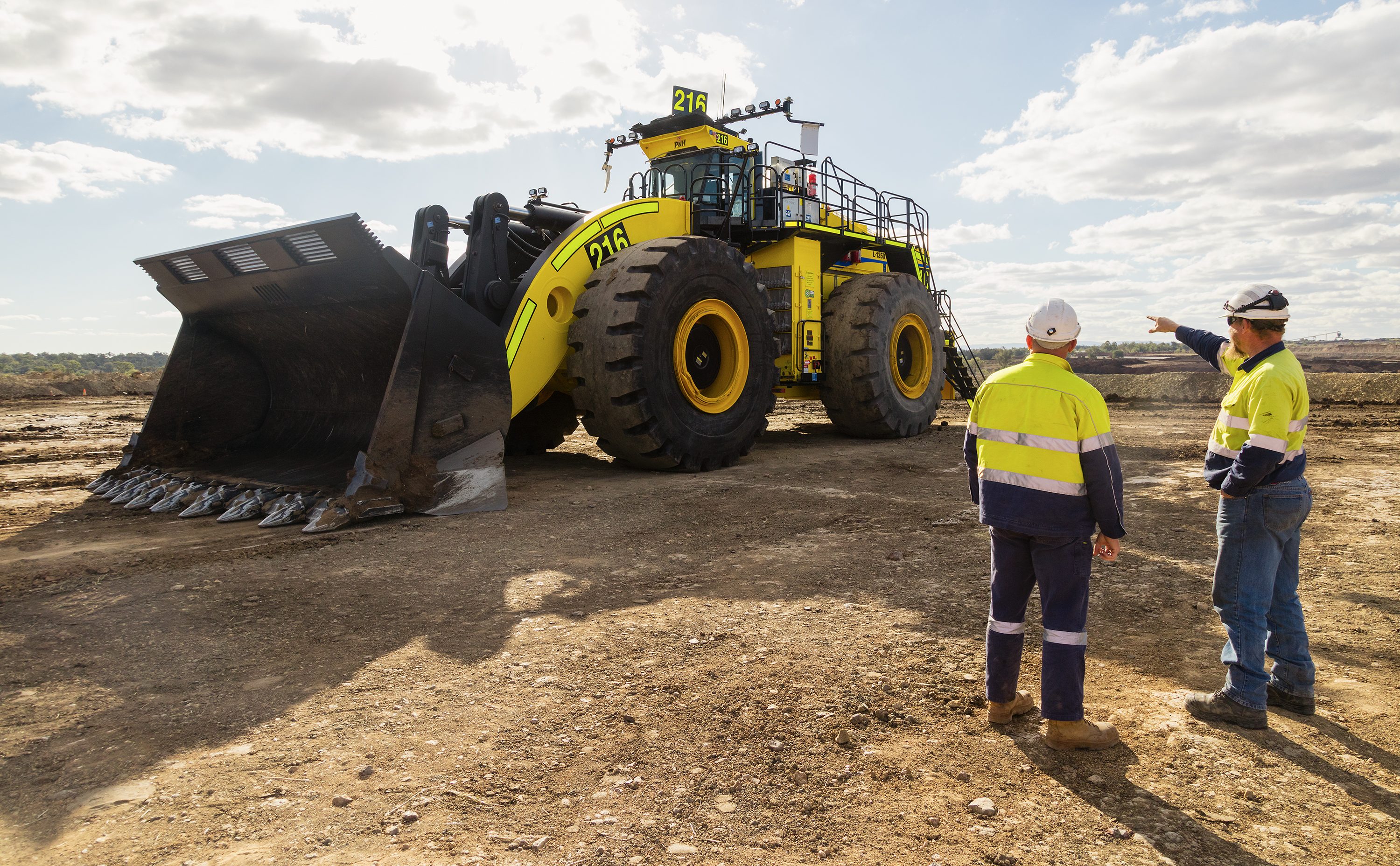
Conduct wheel loader operations
This nationally recognised unit covers the safe and efficient operation of a wheel loader. It includes hazard identification, material handling techniques, loader operation, use of attachments, and routine maintenance in a range of site conditions.
$700.00 per person
NOTE: Third party trainers fees may differ
Approx. 1 day / Face to Face
None
Theory:
Written and/or verbal assessment covering WHS responsibilities, wheel loader operation, hazard controls, and safe work procedures.
Practical (including physical requirements):
Participants will demonstrate:
• Conducting pre-start and operational checks
• Safely operating a wheel loader to move and place materials
• Operating appropriately for different site conditions
• Completing shutdown and securing procedures
Note:
This course involves climbing into and out of machinery, exposure to outdoor conditions, and moderate manual handling. Students must have
access to a compliant wheel loader in safe working condition for the practical assessment.
Further Course Information
To successfully complete the course, students must provide one of the following:
• Letter of Support – confirming prior competency operating a wheel loader,
OR
• Logbook – showing recent operating hours and tasks.
If the logbook is not completed prior to training, the trainer may need to return at a later date to finalise the practical sign-off.
• Civil construction and mining workers
• Earthmoving and plant operators
• Road construction and maintenance staff
• Anyone required to operate a wheel loader as part of their job role
• WHS and legislative requirements for wheel loader operations
• Pre-operational checks and basic maintenance
• Safe material loading, carrying, and dumping
• Hazard identification and control measures
• Shutdown and securing procedures
Upon successful completion, students will receive a Statement of Attainment for:
RIIMPO304E – Conduct Wheel Loader Operations
Refresher training is recommended every 5 years, or sooner if required by workplace policies, site requirements, or changes in legislation or equipment.
This Nationally Recognised Training course is delivered face-to-face by qualified and experienced trainers, ensuring a high standard of practical instruction.
All course materials and handouts are included in your course fee—Full pricing and applicable travel fees are confirmed at the time of booking.
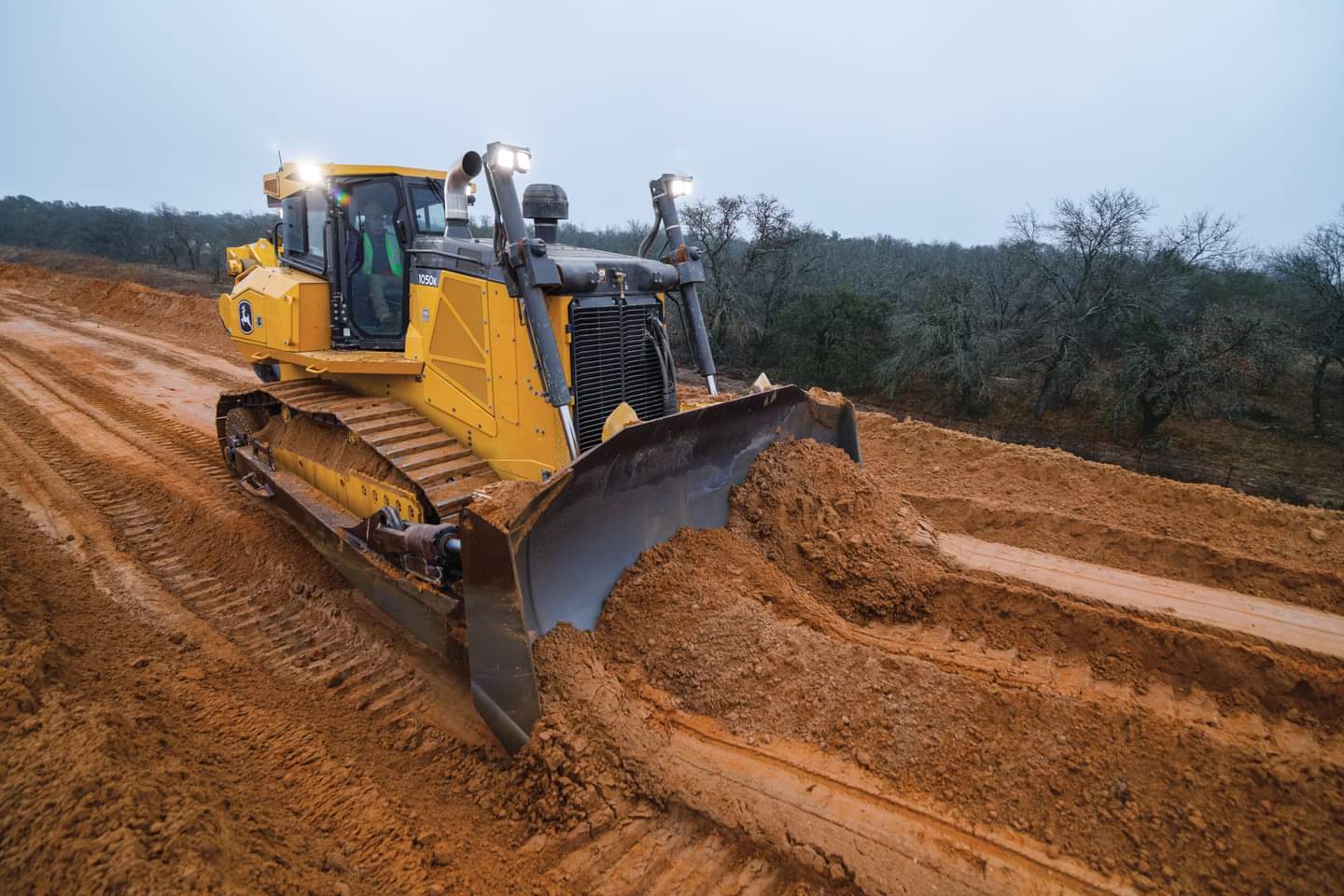
Conduct tracked dozer operations
This nationally recognised unit covers the safe and efficient operation of a tracked dozer. It includes hazard identification, using the blade for cutting and pushing material, working on varied terrain, managing stability, and performing routine maintenance.
$700.00 per person
NOTE: Third party trainers fees may differ
Approx. 1 day / Face to Face
None
• Civil construction and mining workers
• Earthmoving and plant operators
• Road construction and maintenance crews
• Anyone required to operate a tracked dozer
• WHS and legislative requirements for dozer operations
• Pre-operational checks and basic machine maintenance
• Safe material cutting, pushing, and spreading
• Hazard identification and control measures
• Shutdown and securing procedures
Theory:
Written and/or verbal assessment covering WHS responsibilities, dozer operation, hazard controls, and safe work procedures.
Practical (including physical requirements):
Participants will demonstrate:
• Conducting pre-start and operational checks
• Operating a tracked dozer to move and shape material
• Working safely across varied terrain conditions
• Completing shutdown and securing procedures
Note:
This course involves climbing into and out of machinery, exposure to outdoor conditions, and moderate manual handling. Students must have
access to a compliant tracked dozer in safe working condition for the practical assessment.
Further Course Information
To successfully complete the course, students must provide one of the following:
• Letter of Support – confirming prior competency operating a tracked dozer,
OR
• Logbook – showing recent operating hours and tasks.
If the logbook is not completed prior to training, the trainer may need to return at a later date to finalise the practical sign-off.
Upon successful completion, students will receive a Statement of Attainment for:
RIIMPO308F – Conduct Tracked Dozer Operations
Refresher training is recommended every 5 years, or sooner if required by workplace policies, site requirements, or changes in legislation or equipment.
This Nationally Recognised Training course is delivered face-to-face by qualified and experienced trainers, ensuring a high standard of practical instruction.
All course materials and handouts are included in your course fee—Full pricing and applicable travel fees are confirmed at the time of booking.
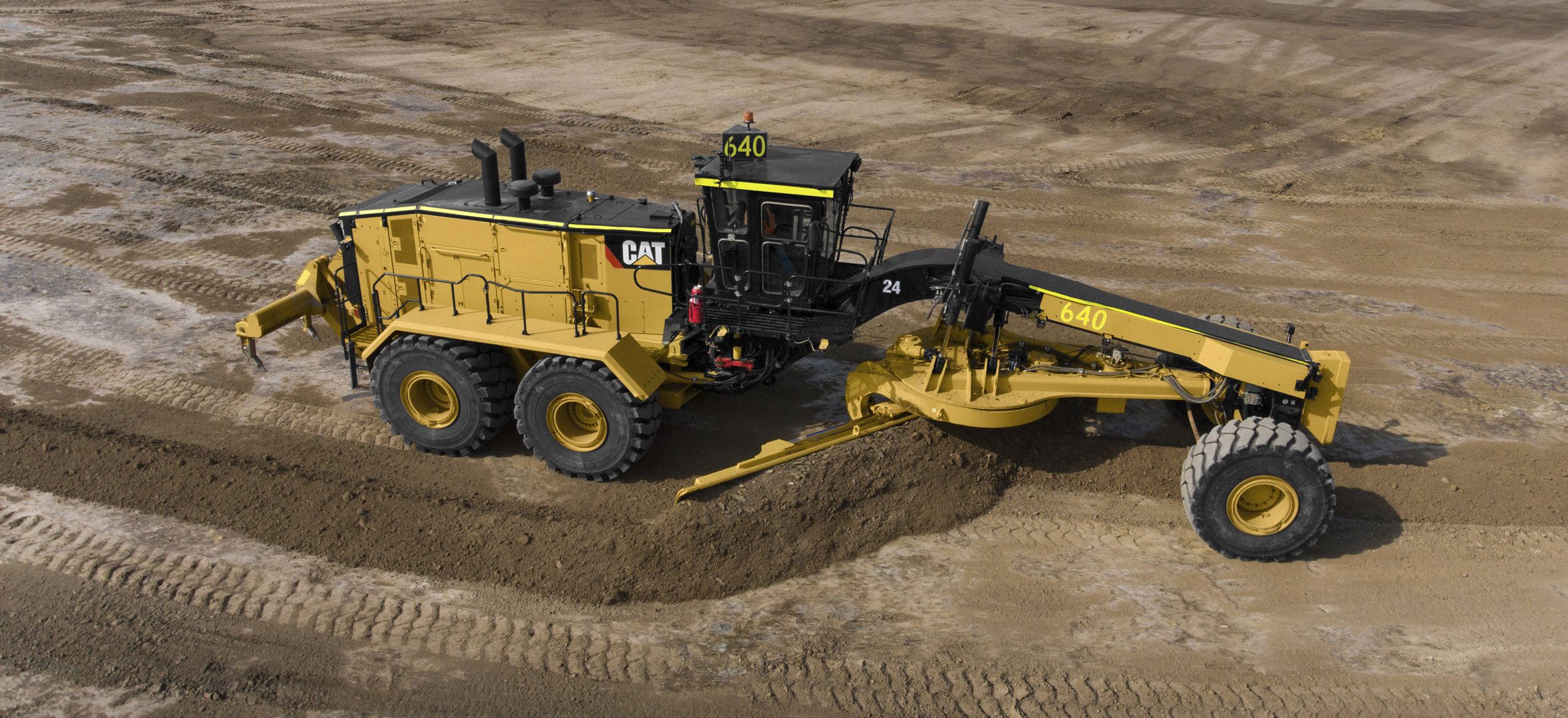
Conduct grader operations
This nationally recognised unit covers the safe and efficient operation of a grader. It includes hazard identification, blade control techniques, working to line and level, operating on varied terrains, and carrying out routine machine maintenance.
$700.00 per person
NOTE: Third party trainers fees may differ
1 Day / Face to Face
None.
Theory:
Written and/or verbal assessment covering WHS responsibilities, grader operation, hazard controls, and safe work procedures.
Practical (including physical requirements):
Participants will demonstrate:
• Conducting pre-start and operational checks
• Safely operating a grader to complete required tasks
• Working appropriately across varied terrains and conditions
• Completing shutdown and securing procedures
Note:
This course involves climbing into and out of machinery, exposure to outdoor conditions, and moderate manual handling. Students must have
access to a compliant grader in safe working condition for the practical assessment.
Further Course Information
To successfully complete the course, students must provide one of the following:
• Letter of Support – confirming prior competency operating a grader,
OR
• Logbook – showing recent operating hours and tasks.
If the logbook is not completed prior to training, the trainer may need to return at a later date to finalise the practical sign-off.
• Civil construction and road maintenance workers
• Earthmoving and plant operators
• Mining and quarry site personnel
• Anyone required to operate a grader
• WHS and legislative requirements for grader operations
• Pre-operational checks and basic maintenance
• Safe cutting, levelling, and finishing techniques
• Hazard identification and application of control measures
• Shutdown and securing procedures
Upon successful completion, students will receive a Statement of Attainment for:
RIIMPO310F – Conduct Grader Operations
Refresher training is recommended every 5 years, or sooner if required by workplace policies, site requirements, or changes in legislation or equipment.
This Nationally Recognised Training course is delivered face-to-face by qualified and experienced trainers, ensuring a high standard of practical instruction.
All course materials and handouts are included in your course fee—Full pricing and applicable travel fees are confirmed at the time of bookin
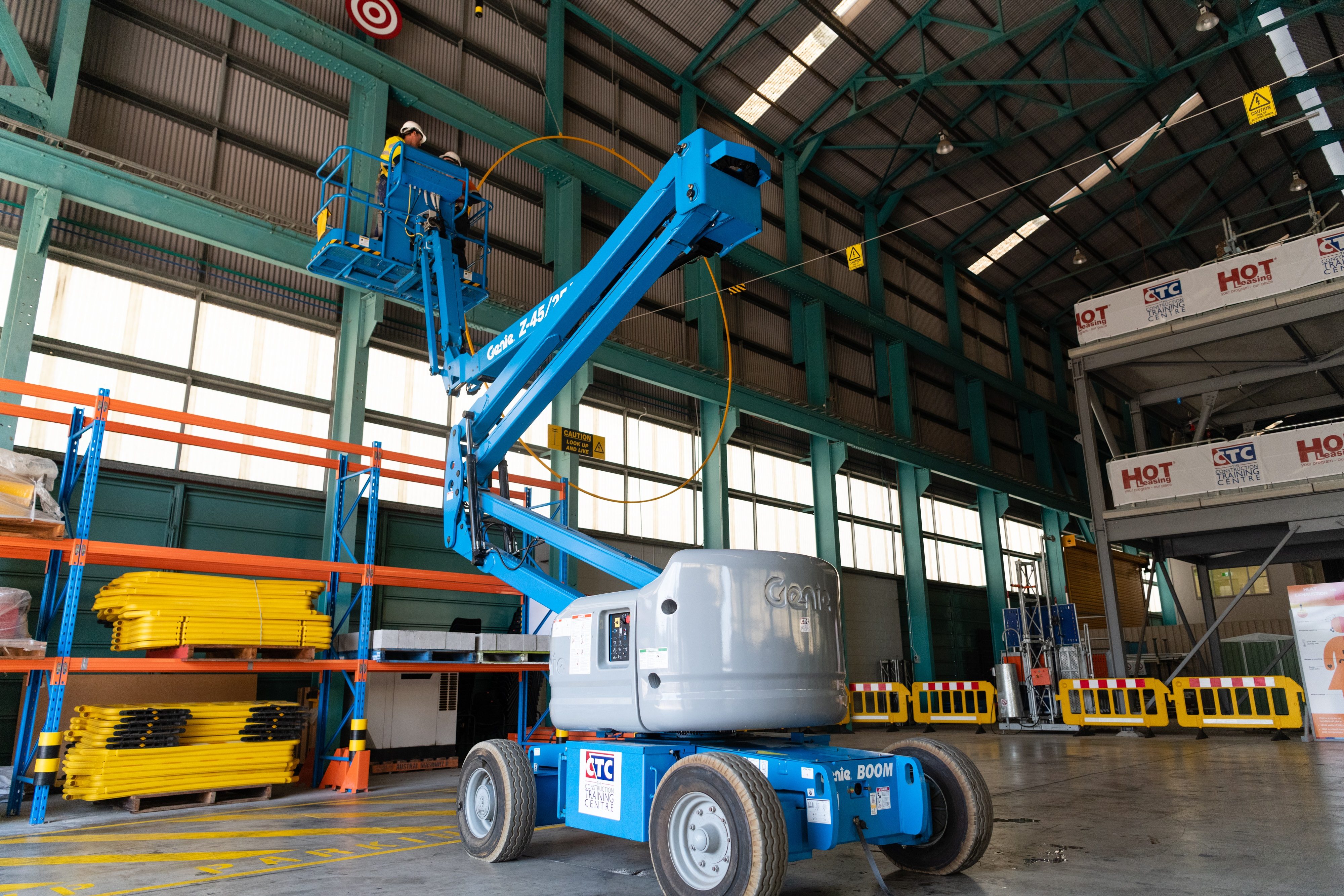
Operate Elevating Work Platform
This unit provides the skills and knowledge required to safely operate an elevating work platform (EWP) under 11 metres. It includes planning, conducting routine checks, safely operating the platform, and shutting down and securing the equipment.
$700.00 per person
Note: Third Party costs may differ
1 Day | Face-to-Face Practical Training
None
Theory:
Written and/or verbal assessment covering hazard controls, operating procedures, and safety protocols
Practical (including physical requirements):
Participants will demonstrate safe operation of an elevating work platform including pre-start checks, positioning, raising/lowering, and
shutdown procedures.
Note: This course requires standing, climbing, harness use, and upper body movement. Students must have access to a compliant EWP (e.g. scissor lift or boom lift under 11m) in safe working condition for the practical component.
Further Course Information
To successfully complete the course, students are required to provide one of the following:
Upon successful completion, students will receive a Statement of Attainment for:
RIIHAN301E – Operate Elevating Work Platform
Refresher training is recommended every 5 years, or sooner if required by workplace policies, site requirements, or changes in equipment and legislation.
This Nationally Recognised Training course is delivered face-to-face by qualified and experienced trainers, ensuring a high standard of practical instruction.
All course materials and handouts are included in your course fee—Full pricing and applicable travel fees are confirmed at the time of booking.
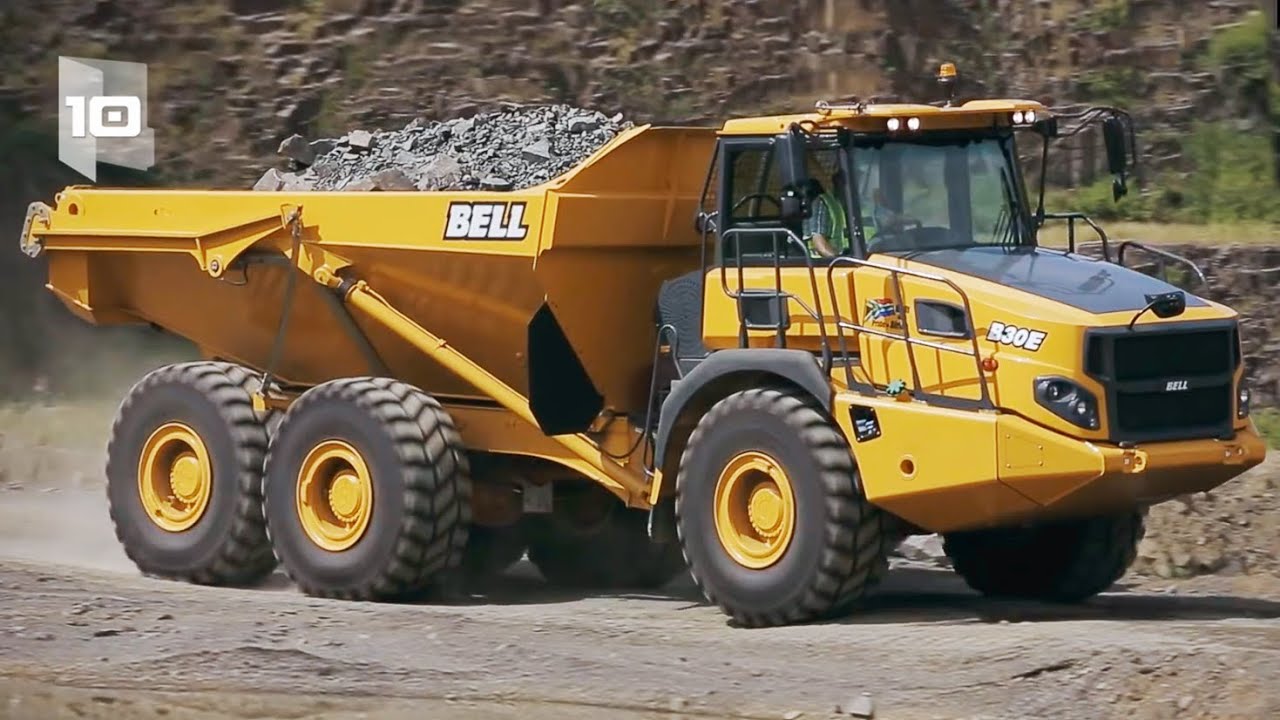
Conduct articulated haul truck operations
This nationally recognised unit covers the safe and efficient operation of an articulated haul truck in accordance with WHS legislation, manufacturer specifications, and workplace procedures. It includes hazard identification, load management, safe operation on varied terrains, and routine maintenance.
$700.00 per person
Note: Third Party Trainers fees may differ
Approx. 1 Day / Face to Face
None.
Theory:
Written and/or verbal assessment covering WHS responsibilities, vehicle operation, load management, and safe work procedures.
Practical (including physical requirements):
Participants will demonstrate:
Note: This course involves climbing into and out of vehicles, sitting for extended periods, and performing moderate manual handling. Students must have access to a compliant articulated haul truck in safe working condition for the practical assessment.
Further Course Information
To successfully complete the course, students must provide one of the following:
If the logbook is not completed before the course, the trainer will need to return at a later date to finalise the assessment sign-off.
Upon successful completion, students will receive a Statement of Attainment for:
RIIMPO337E – Conduct Articulated Haul Truck Operations
Refresher training is recommended every 5 years, or sooner if required by workplace policies, site requirements, or changes in equipment and legislation.
An Articulated Dump Truck is the most common dump/haul truck you will see on a civil or mining site. They are purpose built trucks that are able to go over rough terrain to get the job done. The vehicle usually has all-wheel drive and consists of two basic units: the front section, generally called the tractor, and the rear section that contains the dump body, called the hauler or trailer section.
This Nationally Recognised Training course is delivered face-to-face by qualified and experienced trainers, ensuring a high standard of practical instruction.
All course materials and handouts are included in your course fee—Full pricing and applicable travel fees are confirmed at the time of booking.

Operate roller/compactor
This nationally recognised unit covers the safe and efficient operation of a roller/compactor. It includes hazard identification, compaction techniques, manoeuvring the machine safely, and performing routine maintenance across a variety of terrains.
$700.00 per person
NOTE: Third party trainers fees may differ
Approx. 1 day / Face to Face
None
Theory:
Written and/or verbal assessment covering WHS responsibilities, machine operation, hazard controls, and safe work procedures.
Practical (including physical requirements):
Participants will demonstrate:
• Conducting pre-start and operational checks
• Safely operating a roller/compactor to complete compaction tasks
• Working appropriately across varied site conditions
• Completing shutdown and securing procedures
Note:
This course involves climbing into and out of machinery, exposure to outdoor conditions, and moderate manual handling. Students must have
access to a compliant roller/compactor in safe working condition for the practical assessment.
Further Course Information
To successfully complete the course, students must provide one of the following:
• Letter of Support – confirming prior competency operating a roller/compactor,
OR
• Logbook – showing recent operating hours and tasks.
If the logbook is not completed prior to training, the trainer may need to return at a later date to finalise the practical sign-off.
• Civil construction and road maintenance workers
• Earthmoving and plant operators
• Infrastructure and utilities staff
• Anyone required to operate a roller or compactor
• WHS and legislative requirements for roller/compactor operations
• Pre-operational checks and basic machine maintenance
• Safe and effective compaction techniques
• Hazard identification and risk controls
• Shutdown and securing procedures
Upon successful completion, students will receive a Statement of Attainment for:
RIIMPO205E – Operate Roller/Compactor
Refresher training is recommended every 5 years, or sooner if required by workplace policies, site requirements, or changes in legislation or equipment.
This Nationally Recognised Training course is delivered face-to-face by qualified and experienced trainers, ensuring a high standard of practical instruction.
All course materials and handouts are included in your course fee—Full pricing and applicable travel fees are confirmed at the time of booking.
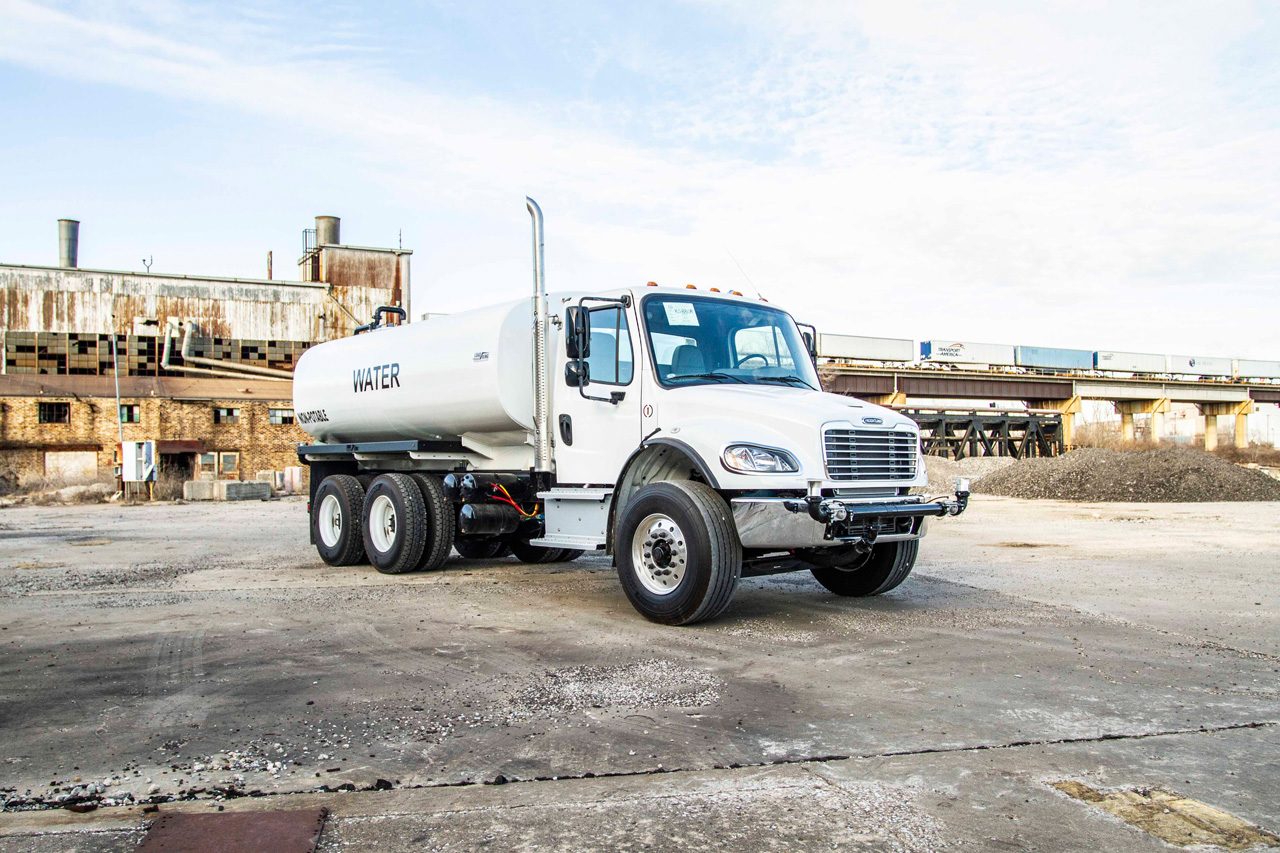
Conduct bulk water truck operations
This nationally recognised unit covers the safe and efficient operation of a bulk water truck. It includes hazard identification, water distribution techniques for dust suppression and compaction, load management, and routine maintenance.
$700.00 per person
NOTE: Third party trainers fees may differ
Approx. 1 day / Face to Face
None
• Civil construction and mining workers
• Road construction and maintenance crews
• Transport, quarry, and infrastructure workers
• Anyone required to operate a bulk water truck
• WHS and legislative requirements for bulk water truck operations
• Pre-operational checks and basic vehicle maintenance
• Safe loading, transporting, and distributing of water
• Hazard identification and risk controls
• Shutdown and securing procedures
Theory:
Written and/or verbal assessment covering WHS responsibilities, water truck operation, hazard controls, and safe work procedures.
Practical (including physical requirements):
Participants will demonstrate:
• Conducting pre-start and operational checks
• Safely operating a water truck to distribute water
• Working safely across varied terrains and conditions
• Completing shutdown and securing procedures
Note:
This course involves climbing into and out of vehicles, exposure to outdoor conditions, and moderate manual handling. Students must have
access to a compliant bulk water truck in safe working condition for the practical assessment.
Further Course Information
To successfully complete the course, students must provide one of the following:
• Letter of Support – confirming prior competency operating a bulk water truck,
OR
• Logbook – showing recent operating hours and tasks.
If the logbook is not completed prior to training, the trainer may need to return at a later date to finalise the practical sign-off.
Upon successful completion, students will receive a Statement of Attainment for:
RIIMPO206D – Conduct Bulk Water Truck Operations
Refresher training is recommended every 5 years, or sooner if required by workplace policies, site requirements, or changes in legislation or equipment.
This Nationally Recognised Training course is delivered face-to-face by qualified and experienced trainers, ensuring a high standard of practical instruction.
All course materials and handouts are included in your course fee—Full pricing and applicable travel fees are confirmed at the time of booking.

Conduct belly dump truck operations
This nationally recognised unit covers the safe and efficient operation of a belly dump truck in accordance with WHS legislation, manufacturer specifications, and workplace procedures. It includes hazard identification, load management, safe dumping techniques, and routine maintenance.
$700.00 per person
Note: Third Party Trainers fees may differ
Approx. 1 Day / Face to Face
None.
Theory:
Written and/or verbal assessment covering WHS responsibilities, vehicle operation, load management, and safe dumping techniques.
Practical (including physical requirements):
Participants will demonstrate:
Note: This course involves climbing into and out of vehicles, sitting for extended periods, and performing moderate manual handling. Students must have access to a compliant belly dump truck in safe working condition for the practical assessment.
Further Course Information
To successfully complete the course, students must provide one of the following:
If the logbook is not completed before the course, the trainer will need to return at a later date to finalise the assessment sign-off.
Upon successful completion, students will receive a Statement of Attainment for:
RIIMPO336E – Conduct Belly Dump Truck Operations
Refresher training is recommended every 5 years, or sooner if required by workplace policies, site requirements, or changes in equipment and legislation.
A Belly Dump Truck is a haul truck commonly used in rural settings. A Belly Dump Truck obtained its name as this particular type of truck dispenses their payload from the bottom of the truck. Internal bed walls are sloped to direct the entire payload out through the opened gates.
Discharge rates can be controlled by the degree of gate opening and the speed of the truck during discharge. The discharge is usually placed in an elongated pile, called a windrow. It is important to follow all appropriate procedures and guidelines when operating a Belly Dump Truck. This will ensure the belly dump is operated within applicable guidelines and that work is conducted in a safe manner.
This Nationally Recognised Training course is delivered face-to-face by qualified and experienced trainers, ensuring a high standard of practical instruction.
All course materials and handouts are included in your course fee—Full pricing and applicable travel fees are confirmed at the time of booking.
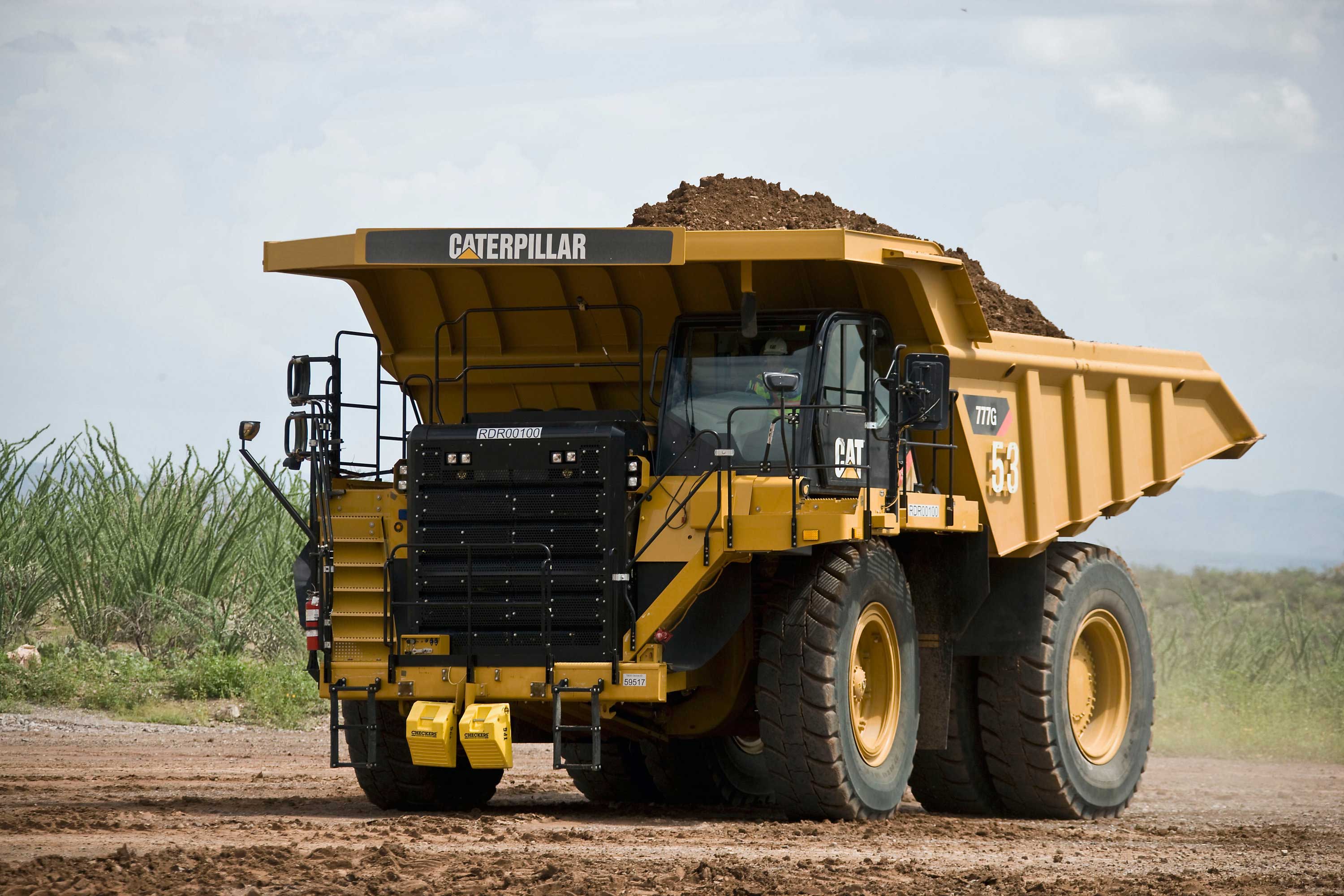
Conduct rigid haul truck operations
This nationally recognised unit covers the safe and efficient operation of a rigid haul truck in accordance with WHS legislation, manufacturer specifications, and workplace procedures. It includes hazard identification, load management, safe operation on varied terrains, and routine maintenance.
$700.00 per person
Note: Third Party Trainers fees may differ
Approx. 1 Day / Face to Face
None.
Theory:
Written and/or verbal assessment covering WHS responsibilities, vehicle operation, load management, and safe work procedures.
Practical (including physical requirements):
Participants will demonstrate:
Note: This course involves climbing into and out of vehicles, sitting for extended periods, and performing moderate manual handling. Students must have access to a compliant rigid haul truck in safe working condition for the practical assessment.
Further Course Information
To successfully complete the course, students must provide one of the following:
If the logbook is not completed before the course, the trainer will need to return at a later date to finalise the assessment sign-off.
Upon successful completion, students will receive a Statement of Attainment for:
RIIMPO338E – Conduct Rigid Haul Truck Operations
Refresher training is recommended every 5 years, or sooner if required by workplace policies, site requirements, or changes in equipment and legislation.
This Nationally Recognised Training course is delivered face-to-face by qualified and experienced trainers, ensuring a high standard of practical instruction.
All course materials and handouts are included in your course fee—Full pricing and applicable travel fees are confirmed at the time of booking.
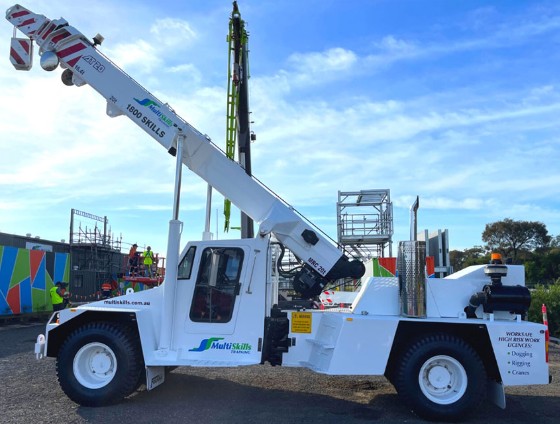
Conduct non-slewing crane operations
This unit describes the skills and knowledge required to operate a non-slewing crane safely, in accordance with WHS legislation, Australian standards, and workplace procedures. The course includes crane setup, pre-start checks, lifting and moving loads, using communication methods, and post-operation shutdown.
$700.00 per person
NOTE: Third Party trainers costs may differ
1 Day / Face to Face.
None
Theory:
Written and/or verbal assessment covering legislation, safety procedures, crane operations, and risk controls.
Practical (including physical requirements):
Participants will demonstrate safe operation of a non-slewing crane including:
• Pre-start inspections
• Load lifting and placement
• Load chart use
• Shutdown procedures
Note: This course requires standing, climbing, moderate lifting, and upper body movement. Students must have access to a compliant non-slewing crane in safe operating condition for the practical component.
Further Course Information
To successfully complete the course, students are required to provide one of the following:
• Operators of vehicle loading cranes or other non-slewing cranes (>3 tonnes)
• Workers in civil, construction, and industrial sectors
• Employers seeking to verify employee competency
• Operators not required to hold a High Risk Work Licence
• Planning lifting tasks and reading load charts
• Identifying and controlling worksite hazards
• Conducting pre-operational inspections
• Safe use of lifting gear and attachments
• Operating a non-slewing crane to lift, move, and place loads
• Shutdown, post-operation checks, and reporting
• Communicating using hand signals and radios
• Understanding workplace procedures and WHS responsibilities
Upon successful completion, participants will receive a Statement of Attainment for:
Refresher training is recommended every 5 years, or sooner if required by workplace policies, site requirements, or changes in equipment and legislation.
This Nationally Recognised Training course is delivered face-to-face by qualified and experienced trainers, ensuring a high standard of practical instruction.
All course materials and handouts are included in your course fee—Full pricing and applicable travel fees are confirmed at the time of booking.

Prepare to Work Safely in the Construction Industry
This nationally recognised course, commonly known as the White Card, is the mandatory minimum training required for anyone working on a construction site in Australia. It provides the essential knowledge and skills to identify construction hazards, manage risks, and follow safe work practices in line with current Work Health and Safety (WHS) legislation.
$140 per person
NOTE: Third Party Trainers fees may differ
Approx. 5 hours
Theory:
Practical (including physical requirements):
Upon successful completion, students will receive a Statement of Attainment for:
There is no mandated refresher for this unit; however, workers may be required to complete refresher training if they have not worked in construction for an extended period or if site-specific requirements apply.
This Nationally Recognised Training course is delivered face-to-face by qualified and experienced trainers, ensuring a high standard of practical instruction.
All course materials and handouts are included in your course fee—Full pricing and applicable travel fees are confirmed at the time of booking.

Use Hand and Power Tools
This course provides hands-on training in the safe use of common hand and power tools used in construction, civil, and resource industry settings. Tools covered may include hammers, screwdrivers, socket sets, angle grinders, cordless drills, impact drivers, and reciprocating saws.
$350.00 per person
Note: Third Party Trainers fees may differ
approx. 4 - 5 hours | Face-to-Face
None
Theory:
Written and/or verbal questions covering tool types, safe operation, and WHS responsibilities. (Basic English literacy and numeracy
required)
Practical (including physical requirements):
Participants will demonstrate the correct selection, operation, and maintenance of a range of hand and power tools.
Note: Tasks may involve lifting, kneeling, standing for long periods, and use of PPE such as gloves and safety glasses.
Upon successful completion, students will receive a Statement of Attainment for:
RIISAM203E – Use Hand and Power Tools
While not mandatory, refresher training is recommended every 2–3 years or when new tools, workplace procedures, or safety protocols are introduced.
This Nationally Recognised Training course is delivered face-to-face by qualified and experienced trainers, ensuring a high standard of practical instruction.
All course materials and handouts are included in your course fee—Full pricing and applicable travel fees are confirmed at the time of booking.

Work as a Safety Observer/Spotter
This nationally recognised unit provides the skills to monitor and observe high-risk work to ensure safety is maintained. It is particularly relevant to those working near overhead or underground services, mobile plant, or in live work areas requiring clear communication and hazard identification.
$350.00 per person
Note: Third Party Trainers fees may differ
Approx. 4 -5 hours | Face-to-Face
None
Theory:
Written and/or verbal questions covering safety responsibilities, exclusion zones, and communication protocols. (Basic English literacy and
numeracy required)
Practical (including physical requirements):
Participants must demonstrate effective observation, hazard recognition, and clear communication in simulated or live site conditions.
Note: Participants may be required to stand for extended periods and use hand signals or communication devices.
Upon successful completion, students will receive a Statement of Attainment for:
RIIRTM203E – Work as a Safety Observer/Spotter
There is no formal refresher requirement for this unit; however, refresher training is recommended every 2–3 years or as required by workplace policies, especially in high-risk environments.
This Nationally Recognised Training course is delivered face-to-face by qualified and experienced trainers, ensuring a high standard of practical instruction.
All course materials and handouts are included in your course fee—Full pricing and applicable travel fees are confirmed at the time of booking.

Operate Breathing Apparatus
This nationally recognised unit provides the skills and knowledge required to safely inspect, fit, operate, and maintain a self-contained breathing apparatus (SCBA) in hazardous environments. It is ideal for workers who may be required to enter confined spaces, respond to emergency situations, or work in atmospheres where respiratory protection is essential.
Training is delivered in accordance with WHS regulations and workplace procedures, with a strong focus on correct usage, communication, and personal safety.
$200.00 per person.
Note: Third Party trainers fees may differ
approx. 4 hours | Face-to-Face
Theory:
Written and/or verbal questions covering breathing apparatus types, maintenance, emergency procedures, and
WHS requirements.
Basic English literacy and numeracy skills required.
Practical (including physical requirements):
Participants must conduct pre-operational checks, don and operate
breathing apparatus in a simulated environment, and respond to workplace scenarios requiring safe use of BA equipment.
Note: This course involves wearing full breathing apparatus gear, moving in confined or low-visibility spaces, and operating under
simulated emergency conditions.
Upon successful completion, students will receive a Statement of Attainment for:
Refresher training is recommended every 1-2 years or in line with your workplace or industry compliance schedule.
This Nationally Recognised Training course is delivered face-to-face by qualified and experienced trainers, ensuring a high standard of practical instruction.
All course materials and handouts are included in your course fee—Full pricing and applicable travel fees are confirmed at the time of booking.

Gas Test Atmospheres
This nationally recognised unit provides participants with the skills and knowledge to safely test, monitor, and interpret atmospheric conditions using portable gas detection equipment. It is designed for individuals working in environments where hazardous gases may be present, such as confined spaces, tanks, or hazardous material storage areas.
Training focuses on understanding atmospheric hazards, using gas testing devices correctly, and responding to unsafe readings.
$200.00 per person
Note: Third Party Trainers fees may differ
Approx. 4 hours |
None
Theory:
Written and/or verbal assessment covering gas hazards, equipment use, and workplace procedures.
Basic English literacy and numeracy skills required.
Practical (including physical requirements):
Participants will demonstrate pre-start checks, operate a gas monitor,
interpret readings, and respond to simulated atmospheric hazards.
Note: Tasks may involve moving in confined areas, using handheld equipment, and following emergency procedures.
Upon successful completion, students will receive a Statement of Attainment for:
Refresher training is recommended every 2 years, or in accordance with industry and site-specific compliance requirements.
This Nationally Recognised Training course is delivered face-to-face by qualified and experienced trainers, ensuring a high standard of practical instruction.
All course materials and handouts are included in your course fee—Full pricing and applicable travel fees are confirmed at the time of booking.

Enter & Work in Confined Space
This nationally recognised unit covers the requirements for working in confined spaces, including planning and preparing for entry, implementing risk controls, using breathing apparatus (where required), and safely exiting the space. It also includes legislative requirements, site communication protocols, and emergency response procedures.
$300.00 per person
Note: Third Party Trainers fees may differ
Approx. 4-5 Hours / Face to Face
None.
Theory:
Written and/or verbal assessment covering WHS responsibilities, confined space hazards, control measures, and safe work procedures.
Practical (including physical requirements):
Participants will demonstrate:
Note: This course involves working in enclosed areas, wearing PPE, and possible use of breathing apparatus.
Upon successful completion, students will receive a Statement of Attainment for:
RIIWHS202E – Enter and Work in Confined Spaces
Refresher training is recommended every 2 years, or sooner if required by workplace policies, site requirements, or changes in equipment and legislation.
This Nationally Recognised Training course is delivered face-to-face by qualified and experienced trainers, ensuring a high standard of practical instruction.
All course materials and handouts are included in your course fee—Full pricing and applicable travel fees are confirmed at the time of booking.

Work Safely at Heights
This nationally recognised unit covers the planning, preparation, and safe execution of work at heights. It includes legislative requirements, correct selection and inspection of fall protection equipment, and implementation of control measures to prevent falls.
$300.00 per person
Note: Third Party Trainers fees may differ
Approx. 4 - 5 Hours / Face to Face
None
Theory:
Written and/or verbal assessment covering WHS responsibilities, hazard controls, and safe work procedures for working at heights.
Practical (including physical requirements):
Participants will demonstrate:
Note: This course involves working at height, wearing a harness, and performing tasks that require moderate physical fitness.
Upon successful completion, students will receive a Statement of Attainment for:
RIIWHS204E – Work Safely at Heights
Refresher training is recommended every 2 years, or sooner if required by workplace policies, site requirements, or changes in equipment and legislation.
This Nationally Recognised Training course is delivered face-to-face by qualified and experienced trainers, ensuring a high standard of practical instruction.
All course materials and handouts are included in your course fee—Full pricing and applicable travel fees are confirmed at the time of booking.

Conduct Lifting Operations
This nationally recognised unit covers the safe and efficient conduct of lifting operations using cranes, hoists, or other lifting equipment (excluding high-risk work licence activities). It includes hazard identification, load estimation, selection of lifting gear, communication protocols, and compliance with WHS legislation and site procedures.
$350.00 per person
Note: Third Party Trainers fees may differ
Approx. 5 Hours / Face to Face
None
Theory:
Written and/or verbal assessment covering WHS responsibilities, lifting equipment operation, load management, and safe work procedures.
Practical (including physical requirements):
Participants will demonstrate:
Note: This course involves manual handling, working around heavy equipment, and sustained periods of standing. Students must have access to compliant lifting equipment in safe working condition for the practical assessment.
Theory:
Written and/or verbal assessment covering WHS responsibilities, lifting equipment operation, load management, and safe work procedures.
Practical (including physical requirements):
Participants will demonstrate:
Note: This course involves manual handling, working around heavy equipment, and sustained periods of standing. Students must have access to compliant lifting equipment in safe working condition for the practical assessment.
Refresher training is recommended every 5 years, or sooner if required by workplace policies, site requirements, or changes in equipment and legislation.
This Nationally Recognised Training course is delivered face-to-face by qualified and experienced trainers, ensuring a high standard of practical instruction.
All course materials and handouts are included in your course fee—Full pricing and applicable travel fees are confirmed at the time of booking.

Operate Small Plant & Equipment
Participants will learn to operate small plant and equipment commonly used on job sites, such as plate compactors, concrete mixers, jackhammers, demolition saws, and small generators. The course focuses on pre-start checks, safe operation, and post-operational maintenance.
$250.00 per person
Note: Third Party Trainers fees may differ
approx. 5 hours | Face-to-Face
None
Theory:
Written and/or verbal questions covering safety procedures, equipment types, and operational checks. (Basic English literacy and numeracy
required)
Practical (including physical requirements):
Participants will operate a range of small equipment in a controlled setting.
Note: Tasks may involve lifting, bending, manual handling, and working outdoors with appropriate PPE.
Upon successful completion, students will receive a Statement of Attainment for:
RIISAM204E – Operate Small Plant and Equipment
Refresher training is recommended every 2–3 years or as directed by workplace policies or WHS risk assessments.
This Nationally Recognised Training course is delivered face-to-face by qualified and experienced trainers, ensuring a high standard of practical instruction.
All course materials and handouts are included in your course fee—Full pricing and applicable travel fees are confirmed at the time of booking.

Load and Unload Goods/Cargo
This nationally recognised unit covers the safe loading and unloading of goods and cargo using manual handling methods and mechanical equipment. It includes hazard identification, load planning, selection of appropriate securing equipment, and safe lifting techniques to protect both workers and goods.
$250.00 per person
Note: Third Party trainers fees may differ.
approx. 5 hours | Face-to-Face
None
Theory:
Written and/or verbal assessment covering WHS responsibilities, safe lifting techniques, and securing methods.
Practical (including physical requirements):
Participants will demonstrate:
Note: This course involves standing for extended periods, bending, and lifting. Students must have access to appropriate goods or cargo, securing equipment, and a safe loading/unloading area for the practical assessment.
Upon successful completion, students will receive a Statement of Attainment for:
TLID0015 – Load and Unload Goods/Cargo
Refresher training is recommended every 5 years, or sooner if required by workplace policies, site requirements, or changes in equipment and legislation.
This Nationally Recognised Training course is delivered face-to-face by qualified and experienced trainers, ensuring a high standard of practical instruction.
All course materials and handouts are included in your course fee—Full pricing and applicable travel fees are confirmed at the time of booking.

Secure Cargo
This unit covers the processes of selecting appropriate securing equipment, applying correct load restraint techniques, and ensuring cargo stability during transport. Emphasis is placed on workplace safety, legal responsibilities, and minimising risk of load movement.
$300.00 per person
Note: Third Party trainers fees may differ.
approx. 5 hours | Face-to-Face
None
Theory:
Written and/or verbal questions based on load restraint guidelines, safety protocols, and compliance requirements (Basic English literacy
and numeracy required).
Practical (including physical requirements):
Participants must demonstrate correct use of securing devices and restraint systems to safely secure a range of simulated cargo.
Note: Tasks involve lifting, bending, and pulling tension straps or chains. Reasonable physical fitness and enclosed footwear are
required.
Upon successful completion, students will receive a Statement of Attainment for:
TLIA1001 – Secure Cargo
Refresher training is recommended every 2–3 years or as per employer WHS and operational requirements.
This Nationally Recognised Training course is delivered face-to-face by qualified and experienced trainers, ensuring a high standard of practical instruction.
All course materials and handouts are included in your course fee—Full pricing and applicable travel fees are confirmed at the time of booking.
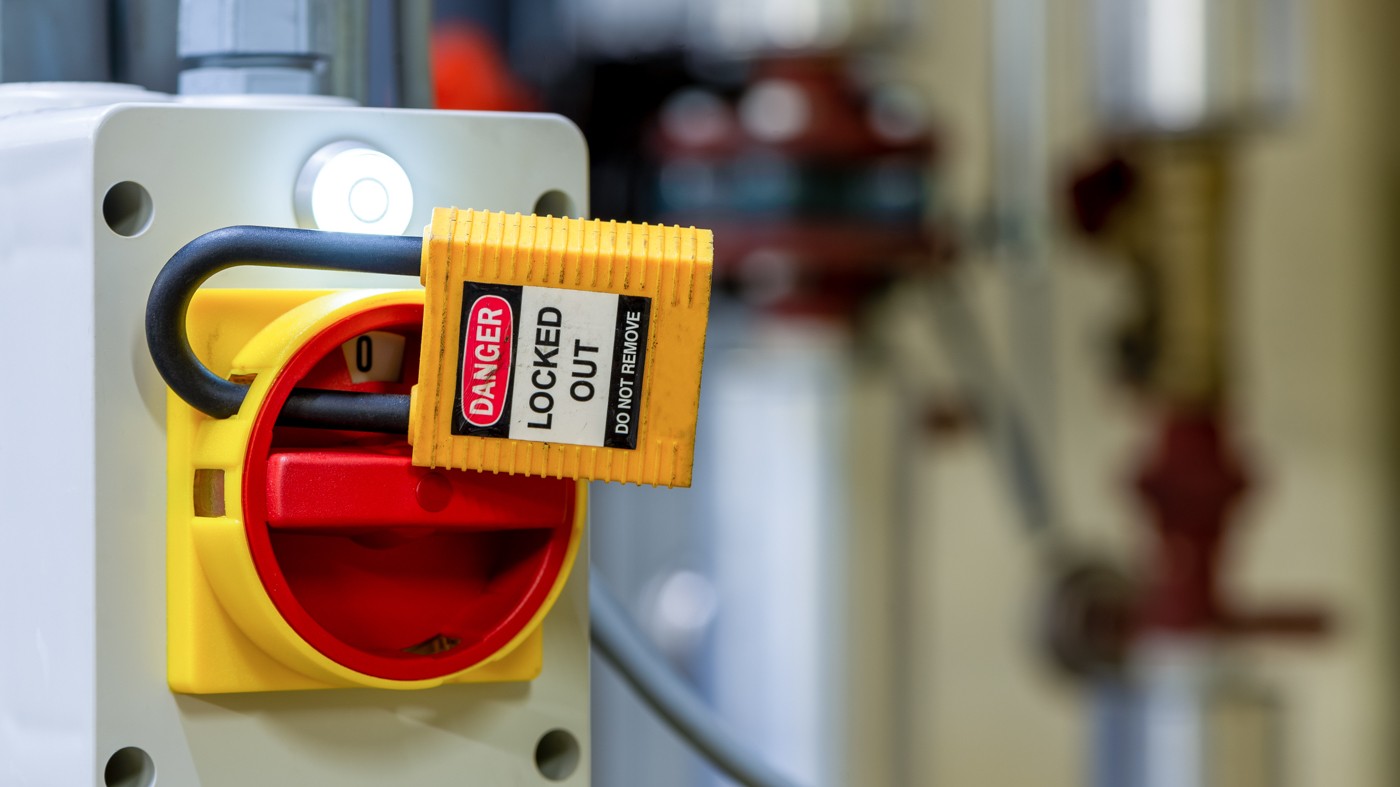
Isolate and Access plant
This nationally recognised unit covers the safe isolation of plant and equipment, including identifying hazards, isolating all energy sources, and ensuring the work area is safe for access. It includes lockout/tagout (LOTO) procedures, testing for zero energy, and compliance with WHS legislation and workplace procedures.
$250.00 per person
Note: Third Party trainers fees may differ.
Approx. 5 hours | Face-to-Face
None
Theory:
Written and/or verbal assessment covering WHS responsibilities, isolation procedures, and hazard controls.
Practical (including physical requirements):
Participants will demonstrate:
Note: This course may involve bending, kneeling, and using tools for lockout/tagout procedures.
Upon successful completion, students will receive a Statement of Attainment for:
RIISAM202E – Isolate and Access Plant
Refresher training is recommended every 2 year, or sooner if required by workplace policies, site requirements, or changes in equipment and legislation.
This Nationally Recognised Training course is delivered face-to-face by qualified and experienced trainers, ensuring a high standard of practical instruction.
All course materials and handouts are included in your course fee—Full pricing and applicable travel fees are confirmed at the time of booking.

Surface Coal Mine Safety Skill Set
(Standard 11)
This skill set includes the following nationally recognised units:
• RIICOM201E – Communicate in the workplace
• RIIERR205D – Apply initial response First Aid
• RIIERR302E – Respond to local emergencies and incidents
• RIIGOV201E – Comply with site work processes/procedures
• RIIRIS201E – Conduct local risk control
• RIIWHS201E – Work safely and follow WHS policies and procedures
This skill set equips participants with the foundational safety knowledge and competencies required to work safely in a surface coal mining environment. Training includes worksite communication, risk management, emergency response, first aid at incident level, and compliance with mine site rules, procedures, and WHS obligations.
FULL COURSE
$850.00 per person
REFRESHER COURSE:
$350.00 per person
Note: Third Party Trainers fees may differ
FULL COURSE
Approx. 1-2 days / Face to Face
REFRESHER COURSE
Approx. 1 day / Face to Face
None
• New or existing workers entering surface coal mining
• Contractors and plant operators working on mine sites
• Labourers and trade assistants working in mining environments
• Anyone needing to meet statutory mine safety requirements
• WHS obligations and safe work practices for surface coal mines
• Communicating effectively in mining environments
• Responding to emergencies and incidents
• Applying initial response first aid
• Conducting risk control measures
• Following site processes, permits, and procedures
Theory:
Written and/or verbal assessment covering WHS requirements, communication, emergency response, risk control, and site compliance.
Practical (including physical requirements):
Participants will demonstrate:
• Applying local risk controls
• Responding to emergency scenarios
• Communicating effectively in workplace situations
• Applying initial first aid response
Note:
This course may involve kneeling, bending, carrying equipment, exposure to outdoor conditions, and simulated emergency scenarios.
Participants must be able to meet the physical requirements of first response and site safety activities.
Upon successful completion, students will receive a Statement of Attainment for all units in the skill set:
Surface Coal Mine Safety Skill Set
• RIICOM201E – Communicate in the workplace
• RIIERR205D – Apply initial response First Aid
• RIIERR302E – Respond to local emergencies and incidents
• RIIGOV201E – Comply with site work processes/procedures
• RIIRIS201E – Conduct local risk control
• RIIWHS201E – Work safely and follow WHS policies and procedures
Refresher training is required every 5 years, or sooner if required by site policies, contractor agreements, or legislative changes.
This Nationally Recognised Training course is delivered face-to-face by qualified and experienced trainers, ensuring a high standard of practical instruction.
All course materials and handouts are included in your course fee—Full pricing and applicable travel fees are confirmed at the time of booking.

Site Safety Supervisor Skill Set
• RIIWHS301E – Conduct safety and health investigations
• RIIRIS301E – Apply risk management processes
• RIICOM301E – Communicate information
This nationally recognised skill set provides essential skills for supervisors, team leaders, and workers responsible for maintaining and supporting a safe workplace. Training includes identifying hazards, conducting risk assessments, leading WHS investigations, communicating safety requirements, and applying workplace procedures.
FULL COURSE
$750.00 per person
REFRESHER COURSE:
$495.00 per person
Note: Third Party Trainers fees may differ
FULL COURSE
Approx. 2 days / Face to Face
REFRESHER COURSE
Approx. 1 day / Face to Face
None
• Supervisors, leading hands, and team leaders
• Workers progressing toward supervisory roles
• Contractors in mining, construction, and civil environments
• Anyone required to conduct WHS investigations or risk assessments
• WHS responsibilities for supervisors and safety leaders
• Conducting workplace risk assessments and applying controls
• Leading or supporting safety and health investigations
• Communicating safety information clearly and effectively
• Following workplace safety processes and documentation requirements
Theory:
Written and/or verbal assessment covering WHS responsibilities, investigation processes, risk assessment frameworks, and communication
requirements.
Practical (including physical requirements):
Participants will demonstrate:
• Conducting a basic safety investigation
• Completing a workplace risk assessment
• Communicating safety information to a work group
• Applying WHS processes and documentation
Note:
This course may involve kneeling, bending, walking across worksites, and participating in simulated WHS investigations. Participants must be
able to meet the physical requirements of basic safety tasks.
Upon successful completion, students will receive a Statement of Attainment for:
• RIIWHS301E – Conduct safety and health investigations
• RIIRIS301E – Apply risk management processes
• RIICOM301E – Communicate information
Refresher training is recommended every 5 years, or sooner if required by workplace policies, site requirements, or changes in legislation or safety systems.
This Nationally Recognised Training course is delivered face-to-face by qualified and experienced trainers, ensuring a high standard of practical instruction.
All course materials and handouts are included in your course fee—Full pricing and applicable travel fees are confirmed at the time of booking.
If you are undertaking nationally recognised training delivered by a registered training organisation you will need to have a Unique Student Identifier (USI). This includes studying at TAFE or with a private training organisation, completing an apprenticeship or skill set, certificate or diploma course.
Check out our Course Eligibility page for more information on USI and how to apply for one.
